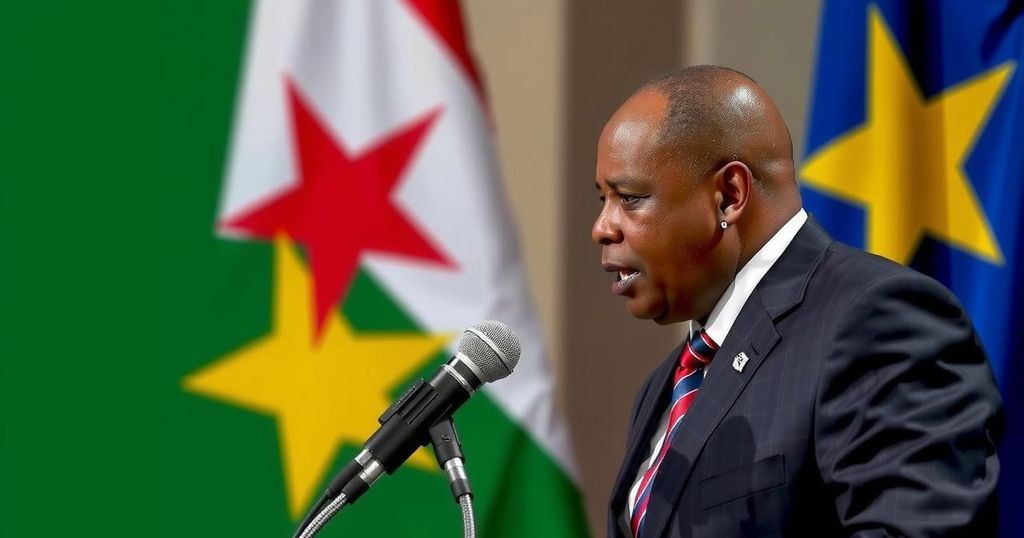President Kiir Confirms Commitment to Conclude Tumaini Peace Talks in South Sudan

South Sudan’s President Salva Kiir reaffirmed during the 8th annual Governor’s Forum that Tumaini peace talks aim to incorporate hold-out groups’ concerns into the existing Revitalized Peace Agreement, not to create a new agreement. The transitional period is extended by two years for effective preparations for December 2026 elections. UN officials stress the need for clearer action plans to fulfill peace commitments and improve humanitarian access amidst significant national challenges.
South Sudan’s President, Salva Kiir Mayardit, assured that the ongoing Tumaini peace negotiations with non-signatory groups in Nairobi will not replace the existing Revitalized Peace Agreement established in 2018. The aim is to integrate the concerns of these hold-out groups into the current accord to promote inclusivity and prevent any resurgence of conflict. President Kiir emphasized the importance of expediting these discussions and restructuring the government delegation for an efficient negotiation process, thereby affirming a commitment to achieving lasting peace.
The Special Representative of the Secretary-General for South Sudan, Nicholas Haysom, remarked on the necessity of a concrete, harmonized work plan following a two-year extension of the transitional period and postponed elections, which he characterized as regrettable yet necessary due to stalled progress on key agreement components. He urged all parties to act urgently to meet their commitments to the South Sudanese populace.
President Kiir reminded potential election candidates of the significance of the upcoming elections slated for December 2026 and encouraged immediate preparation efforts. Concurrently, Mr. Haysom expressed the shared aspirations of South Sudanese citizens for a transition from conflict to peacebuilding, urging regional leaders to address fundamental causes of discord by improving public financial management and delivering essential services.
The Governor’s Forum serves as a critical platform for high-level dialogue aimed at fostering collaboration on implementing the peace agreement amid pressing humanitarian challenges, including a significant population in need of aid and ongoing issues stemming from violence, food insecurity, and illness. Anita Kiki Gbeho, the Deputy Special Representative, highlighted the importance of ensuring unobstructed humanitarian access to alleviate the dire circumstances faced by many.
In South Sudan, peace initiatives such as the Tumaini talks aim to facilitate dialogue with groups that have not signed the existing Revitalized Peace Agreement. These negotiations are crucial as they determine the country’s trajectory towards stability, especially after years of conflict that have led to humanitarian crises. The government’s commitment to a structured peace process reflects the broader need for collaboration and inclusivity among factions to resolve their grievances. Meanwhile, the ongoing humanitarian challenges necessitate coordinated efforts to provide essential aid to millions in need.
The developments surrounding the Tumaini peace negotiations signify a concerted effort by South Sudan’s leadership to make meaningful progress towards enduring peace. President Kiir’s assurances regarding the integration of hold-out groups’ concerns and the emphasis on urgent action underscore the complexity and urgency of South Sudan’s political landscape. As negotiations advance, the emphasis on humanitarian access remains critical for addressing the overwhelming needs of a populace affected by years of instability and conflict.
Original Source: www.socialnews.xyz







